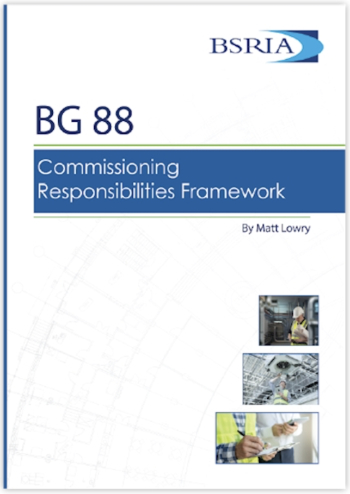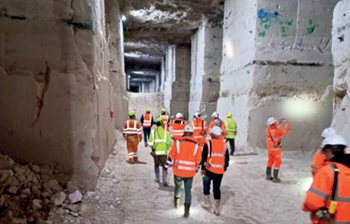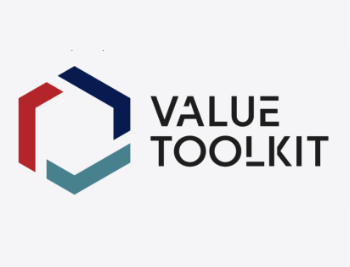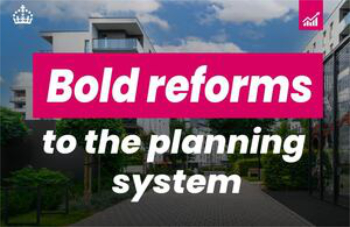Five steps to a healthy data culture in construction
Introduction
The data revolution is upon us but the construction industry is a long way from where it needs to be. Digitisation is a demanding process that is inextricably linked to the behaviour and mindset of the sector. Many people wrongly perceive the shift to digital as a continuous and linear process which will keep developing no matter what.
In September 2018, McKinsey and Company published detailed and informative research about the steps that every sector needs to take to introduce a healthy data culture. Ref https://www.mckinsey.com/business-functions/mckinsey-analytics/our-insights/why-data-culture-matters
Bringing construction and analytics together can be much easier if the following five principles are taken into account:
1. Committing to a healthy data culture is forever
The development of a data culture is a continuous process. Commitment is required from all industry stakeholders if this vital transformation to succeed.
Cameron Davies (NBC Universal) suggested that the enforcement of a data culture as ‘CEO-mandated’ is unlikely to succeed. The uninterrupted connection between all decision-makers and stakeholders in charge of data systems and processes is of paramount importance as they work closely towards a common goal.
2. Data as the basis of the decision-making process
There is a common misconception not only in construction but in every other industry that sees data as simply a challenging experiment. In fact, it is a sincere, scientific endeavour to improve the decision-making process. Every data-related effort should result in the resolution of a specific problem.
3. Quality over quantity
One of the least appropriate phrases in relation to data is 'the more, the merrier'.
The amount of data that can be produced in the construction industry is enormous, but this brings the danger that stakeholders get lost in a sea of data that they do not know how to use. There should always be a specific reason for the collection of data and a carefully elaborated framework for its analysis.
Ibrahim Gokcen, chief digital officer at AP Moller Maersk, suggests that when it comes to data the problem is not the amount, but rather its' alignment to the objectives of the organisation.
4. The democratisation of data
Data should be open to all levels of an organisation.
It is difficult to impose change if people do not understand the concept; they have to see how it will improve the way they work. Decision-makers need to understand that taking the time to show their teams the benefits of data can actually accelerate the change.
Boeing CIO Ted Colbert said: “When people begin to believe in the data, it’s a game changer: They begin to change their behaviours, based on a new understanding of all the richness trapped beneath the surface of our systems and processes”.
5. Finding data-driven talent and workforce
In the end, everything comes down to finding the right people to implement change.
The construction industry has a unique opportunity to attract young, ambitious talent with a data background. This talent boost could help accelerate change and facilitate the introduction, development and implementation of a healthy data culture.
Conclusion
The power of habit and problematic contractual relations are two of the main obstacles the industry needs to overcome if it is to create a healthy data culture. The connection of analytics with existing systems and processes is a complex process which demands continuous commitment and the inclusion of all industry stakeholders.
About this article
This article was written by Anastasios Koutsogiannis, content marketing manager at GenieBelt - real-time construction software.
--GenieBelt 11:11, 20 Nov 2018 (BST)
Related articles on Designing Buildings Wiki
- Artificial intelligence and civil engineering.
- Big data.
- Building Automation and Control System BACS.
- Building information modelling.
- Building management systems.
- Building Services Analytics - BG 75 2018.
- Cyber threats to building automation and control systems.
- Engineering Smart Cities.
- Global building energy management systems market.
- Internet of things.
- Making the most of big data.
- Open data.
- Open data - how can it aid the development of the construction industry?
- Smart building.
- Smart city.
- Smart technology.
- The readiness of UK companies to adopt new digital technologies.
Featured articles and news
Commissioning Responsibilities Framework BG 88/2025
BSRIA guidance on establishing clear roles and responsibilities for commissioning tasks.
An architectural movement to love or hate.
Don’t take British stone for granted
It won’t survive on supplying the heritage sector alone.
The remarkable story of a Highland architect.
The Constructing Excellence Value Toolkit
Driving value-based decision making in construction.
Meet CIOB event in Northern Ireland
Inspiring the next generation of construction talent.
Reasons for using MVHR systems
6 reasons for a whole-house approach to ventilation.
Supplementary Planning Documents, a reminder
As used by the City of London to introduce a Retrofit first policy.
The what, how, why and when of deposit return schemes
Circular economy steps for plastic bottles and cans in England and Northern Ireland draws.
Join forces and share Building Safety knowledge in 2025
Why and how to contribute to the Building Safety Wiki.
Reporting on Payment Practices and Performance Regs
Approved amendment coming into effect 1 March 2025.
A new CIOB TIS on discharging CDM 2015 duties
Practical steps that can be undertaken in the Management of Contractors to discharge the relevant CDM 2015 duties.
Planning for homes by transport hubs
Next steps for infrastructure following the updated NPPF.
Access, history and Ty unnos.
The world’s first publicly funded civic park.
Exploring permitted development rights for change of use
Discussing lesser known classes M, N, P, PA and L.
CIOB Art of Building photo contest 2024 winners
Fresco School by Roman Robroek and Once Upon a Pass by Liam Man.


























Comments
Thank you for the valuable points of healthy data culture. I think it's very important to spread the word about data-driven information, specifically in the business field.
Good luck!